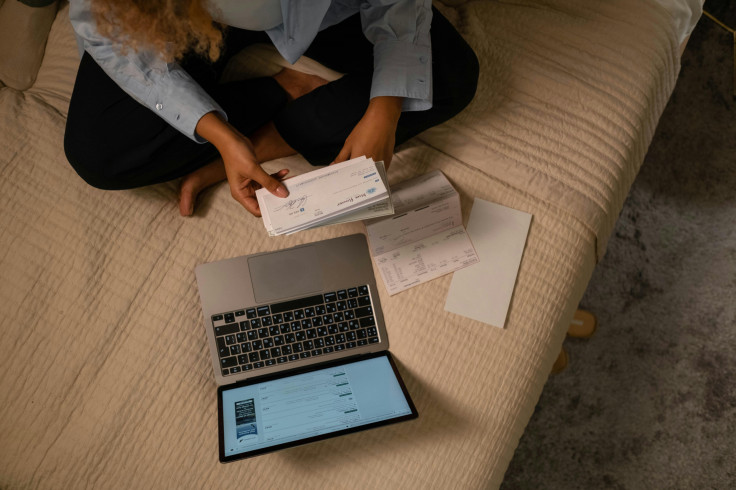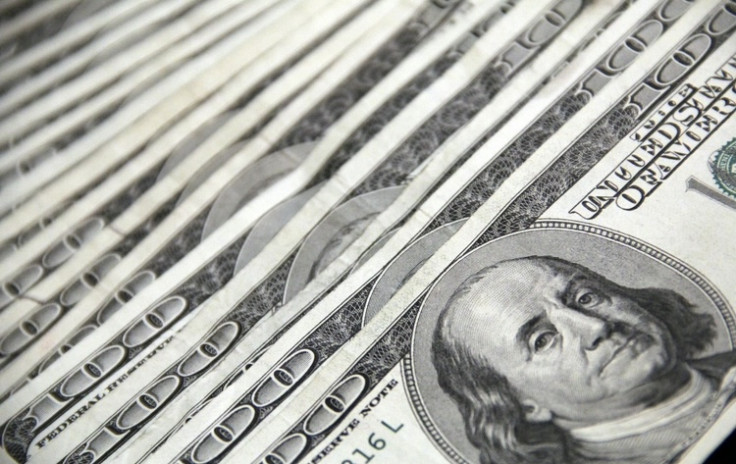Is Your Bank About to Drop an Unexpected $1,400? The Shadowy Origins of 2025's 'Fourth Stimulus' Rumours—And How to Tell a Windfall From a Scam
$1,400 IRS deposits are hitting accounts, but it's not a new stimulus; here's what it really is, who qualifies, and how to avoid fake cheque scams

Americans scrolling social media this week have come across breathless claims that a 'fourth stimulus' is moments away from landing in their bank accounts.
Some posts even name a figure: $1,400, allegedly poised to appear under the cryptic deposit code 'IRS TREAS 310 TAX REF.'
While a minority of households really are receiving that sum, experts warn the payments are neither new stimulus cheques nor proof of a fresh relief programme and scammers are already weaponising the confusion.
What the $1,400 deposits really are
According to the Internal Revenue Service (IRS), the money now hitting roughly one million bank accounts is the 2021 Recovery Rebate Credit owed to people who qualified for, but never claimed, their third-round pandemic payment.
The IRS opted to issue the credit automatically rather than force recipients to file an amended return, after internal data showed a large cohort had 'overlooked' the paperwork.
Eligibility mirrors the original March 2021 parameters: up to $75,000 in adjusted gross income for single filers (phasing out at $80,000) and $150,000 for married couples (phasing out at $160,000). Dependants of any age may qualify. The absolute filing deadline for that 2021 return was 15 April 2025.
How the rumour mill cranked up
The perfectly timed arrival of late-paid credits has collided with a noisy online narrative promising a brand-new 'fourth stimulus'. Hashtags such as #FourthCheque and #MyDogeDividend spiked after right-wing influencers revived Donald Trump's mooted Department of Government Efficiency (DOGE) dividend—a plan that, on paper, would send $5,000 to households classed as net federal taxpayers. Even so, Congress has taken no vote, and analysts describe the proposal as 'increasingly unlikely'.
The scammers' playbook

Fraudsters have pounced on the conflation of legitimate IRS credits and speculative stimulus chatter. A February investigation by Forbes detailed text-message campaigns claiming people must 'verify identity' or pay a nominal 'release fee' to secure $1,400 or $5,000 deposits.
The IRS itself warns that promises of 'unexpected tax refunds' now feature prominently in its annual Dirty Dozen list of scams. Typical tactics include smishing (SMS phishing) and spoofed Treasury cheques bearing poor-quality micro-printing.
Cheque or scam? The red-flag checklist
- Source the code: Genuine direct deposits from the IRS carry descriptors such as 'IRS TREAS 310 TAX REF' or 'IRS TREAS 310 TAXEIP3'. Anything else demands caution.
- No upfront fees: The government never asks you to pay to 'unlock' a rebate.
- Watch the sender: Emails or texts from unofficial domains, shortened URLs, or WhatsApp messages are immediate warning signs.
- Confirm via IRS tools: Use Where's My Refund or call the IRS directly; never follow hyperlinks supplied by strangers.
- Paper security features: For posted cheques, inspect the watermark and heat-sensitive ink; compare against IRS guidance or a bank clerk's advice.
The bottomline
There is no federally authorised 'fourth stimulus cheque' in 2025. What some people are seeing is simply the settling-up of the last pandemic-era credit.
Those still waiting must rely on the IRS's automatic run. There is no new application window, and the deadline to file the missing 2021 return has elapsed.
For everyone else, any message promising fresh stimulus cash today is almost certainly either misinformation designed for clicks or a direct fraud attempt.
If an unexpected £-or-$ windfall does land, check the coding, cross-reference with your 2021 tax position, and be suspicious of anyone asking you to move quickly. In short: when the narrative sounds too good or too political to be true, it probably is.
© Copyright IBTimes 2025. All rights reserved.




















